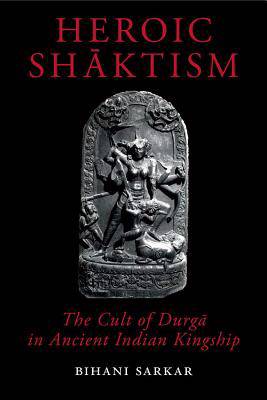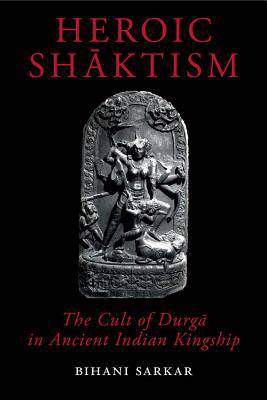
- Retrait gratuit dans votre magasin Club
- 7.000.000 titres dans notre catalogue
- Payer en toute sécurité
- Toujours un magasin près de chez vous
- Retrait gratuit dans votre magasin Club
- 7.000.0000 titres dans notre catalogue
- Payer en toute sécurité
- Toujours un magasin près de chez vous
Description
Heroic Saktism is the belief that a good king and a true warrior must worship the goddess Durga, the form and substance of kingship. This belief formed the bedrock of ancient Indian practices of cultivating political power. Wildly dangerous and serenely benevolent at one and the same time, the goddess's charismatic split nature promised rewards for a hero and king and success in risky ventures. This book is the first expansive historical treatment of the cult of Durga and the role it played in shaping ideas and rituals of heroism in India between the 3rd and the 12th centuries CE. Within the story of ancient Indian kingship, two critical transitions overlapped with the rise of heroic Saktism: the decline of the war-god Skanda-Mahasena as a military symbol, and the concomitant rise of the early Indian kingdom. As the rhetoric of kingship once strongly linked to the older war god shifted to the cultural narratives of the goddess, her political imagery broadened in its cultural resonance. And indigenous territorial deities became associated with Durga as smaller states unified into a broader conception of civilization. By assessing the available epigraphic, literary and scriptural sources in Sanskrit, and anthropological studies on politics and ritual, Bihani Sarkar demonstrates that the association between Indian kingship and the cult's belief-systems was an ancient one based on efforts to augment worldly power.
Spécifications
Parties prenantes
- Auteur(s) :
- Editeur:
Contenu
- Nombre de pages :
- 310
- Langue:
- Anglais
- Collection :
Caractéristiques
- EAN:
- 9780197266106
- Date de parution :
- 26-12-17
- Format:
- Livre relié
- Format numérique:
- Genaaid
- Dimensions :
- 160 mm x 236 mm
- Poids :
- 657 g

Les avis
Nous publions uniquement les avis qui respectent les conditions requises. Consultez nos conditions pour les avis.






